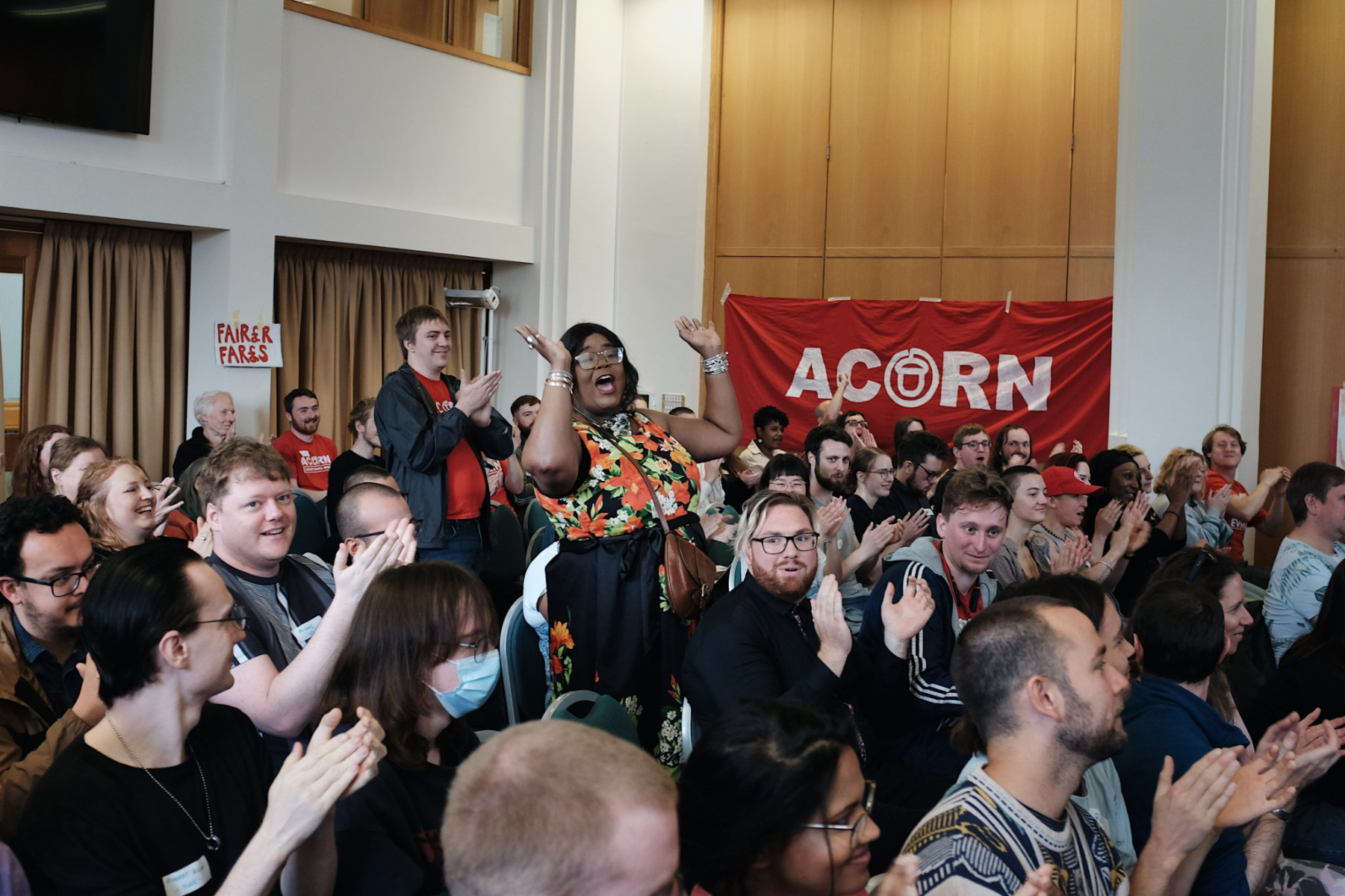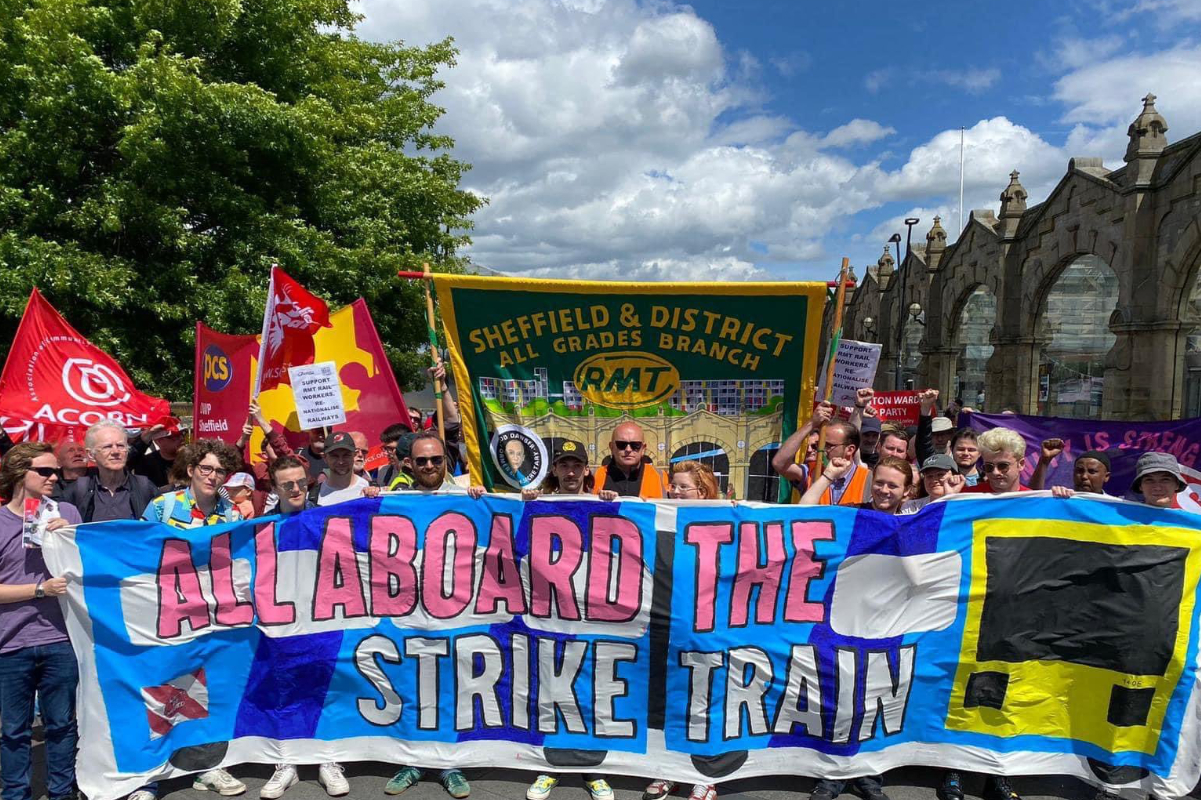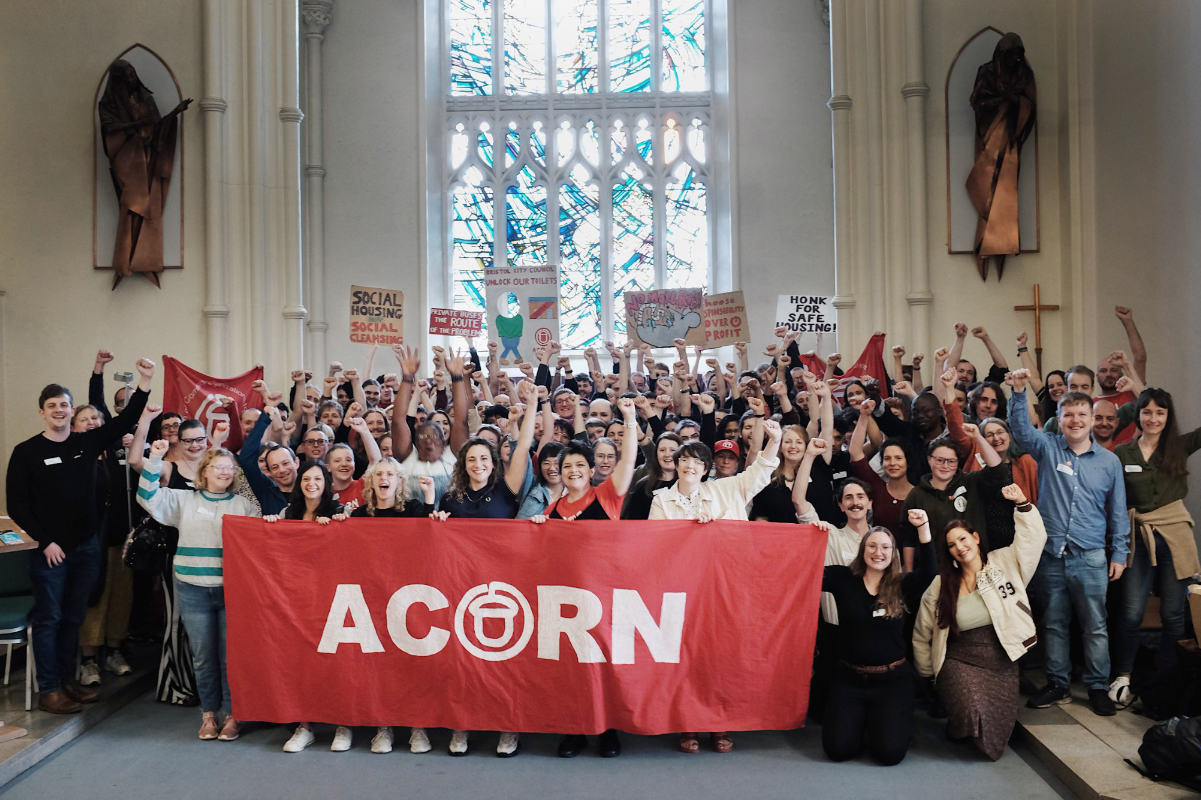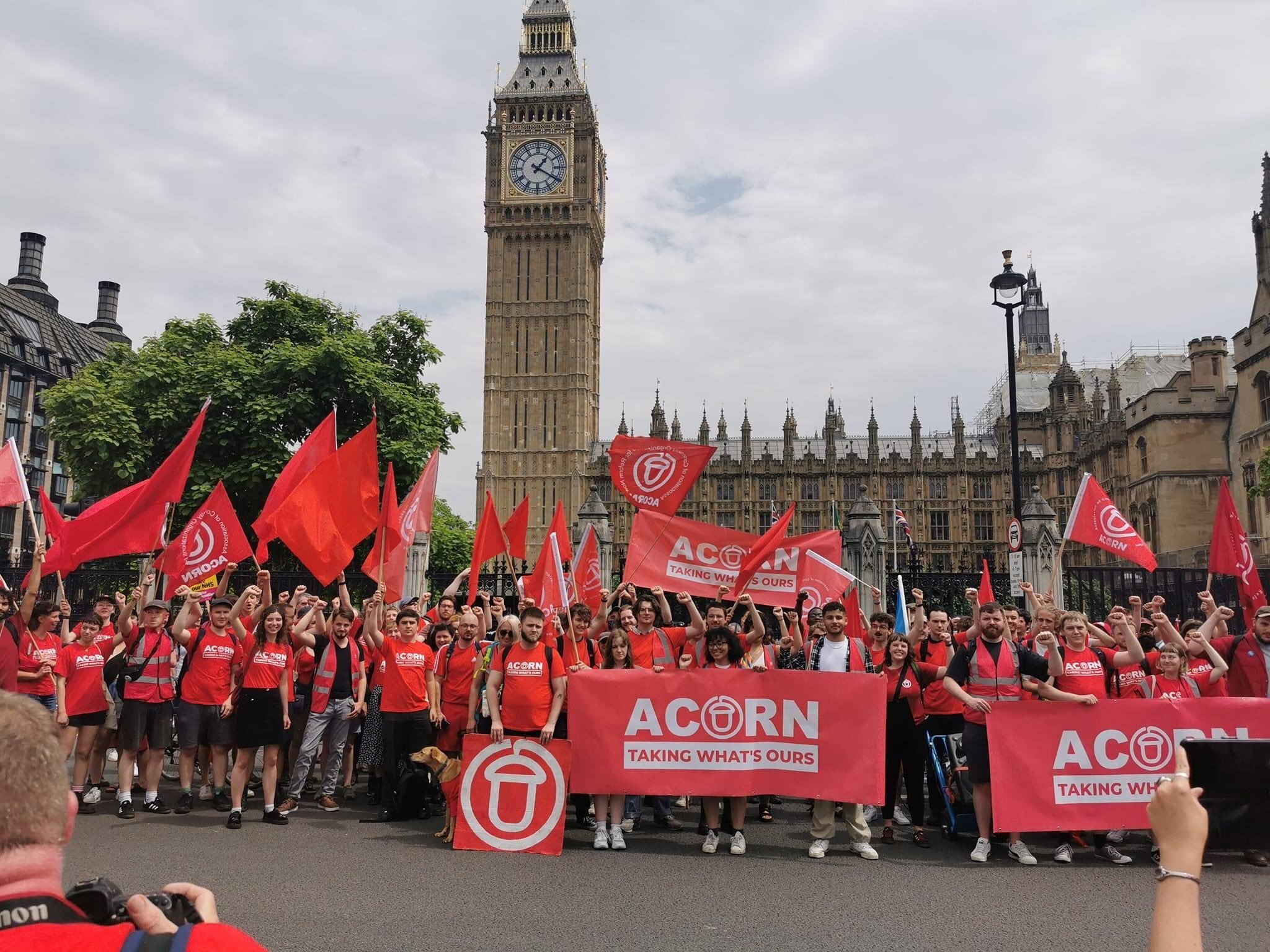Voices
How community unions are key to this summer of strikes
A cause for hope in the strengthening of relationships between community and workplace unions
Becca Kirkpatrick | 27 Jul 2022

Image credit: ACORN.
A dominant political theme of this summer has been the perfect storm of wage suppression and price hikes while corporate profits and executive pay continue to rocket.
From rail workers and bus drivers to barristers, postal workers and airline staff – workers have been responding with their most potent tool – industrial action – and there are signs that a richer, more connected ecosystem of organisation is in bloom.
The working class is back. That was Mick Lynch’s rallying cry among the most significant wave of industrial action in a generation. But it’s not just in the workplace that we need to get organised.
Another exciting dimension is strengthening relationships between community organisations and workplace unions. I’ve been a workplace union rep since 2006, and until now, these relationships have been, unfortunately, tokenistic at best.

What is a community union?
While community groups and workplace unions often have crossovers, the focus of how and where they organise is different. Community unions could be an alliance between worker unions, sports fan groups, or faith institutions. It could be a community campaign with minimal union support. It could be a worker advice centre run by a non-union organisation.
In his book ‘Nuts and Bolts’, ACORN founder Wade Rathke suggests that the structure of a mass organisation has to be organic, natural and flexible. The ACORN model is scalable, effective and replicable.
The leading community organisation ACORN operates on a model similar to a workplace union: a branch structure (based on neighbourhood and town/city instead of workplace and employer), elected leaders, and high levels of membership activity and development, rather than a top-down advocacy approach.
Once pigeonholed as a renters’ union focused on housing, ACORN UK remit has expanded to encompass diverse issues, including:
- Free school meals in Norwich
- Public toilets in Bristol
- Leisure facilities in Haringey
- Limiting holiday lets in Cornwall
- DSS discrimination by landlords in Birmingham
- In the pandemic, 600 people volunteered to do mutual aid in Brighton
A national conference for an international community union

July saw the first UK conference for ACORN, which I attended as one of the West Midlands reps on the ACORN Board, along with around 160 others.
In Sheffield, a pivotal city in working-class history, Chair and CWU activist Rohan referenced the Kinder Scout Mass Trespass, the Hillsborough disaster, the Battle of Orgreave, and the legalisation of unions and removal of criminal liability from strikes in the 1870s following Sheffield workers’ rebellion.
Now eight years old in the UK, ACORN has thousands of members across 26 branches and nine regions, with at least 130 elected leaders. Seven new groups have launched this year, and Southend, Southwark, Bradford, Hackney, Tottenham & more are coming.
Recent wins include:
- Public control of buses in Manchester, Sheffield and Liverpool won by coalitions including ACORN
- Landlord licensing in Oxford, Bristol, Sheffield and Newcastle (with Manchester and Leeds campaigns ongoing)
- Banning second home ownership in Brighton
ACORN now has an active presence in every continent. At the UK conference, we heard about inspiring examples of mass organisations and wins from across the globe.
Dharmendra Kumar from ACORN India told us about the Hawkers Joint Action Committee for self-employed street vendors selling without any permanent structure. Delhi has 73 market committees, with 11,000 membership in 2022. During lockdown, ACORN surveyed vendors – 67,000 in Delhi to decide what demands to make and campaigns to run.
Alejandra Ruiz Vargas and Marva Burnett dialled in from ACORN Canada. ACORN Canada has 160,000+ members across 24 chapters and six provinces, with 10,000 members taking action.
Marva gave a deep dive into how ACORN Canada follows the money in tackling the financialisation of their housing sector, with corporate landlords and real Estate Investment Trusts owning 20-30% of apartments in Canada. Working out where to hit them where it hurts, ACORN Canada has targeted pension funds for public workers that invest in financialised housing and predatory lending and turned up face-to-face with 200 members. ACORN Canada closed down a road intersection where five implicated banks were based and have called out governments over tax breaks to REITs.
ACORN organising workers
ACORN has been supportive of and sometimes taken the lead in organising workers. This summer marks a step forward in formal recognition by the UK labour movement for ACORN, built upon months and years of steady graft and patient relationship building.
One conference guest was the hospitality workers organising initiative Sheffield Needs a Pay Rise (SNaPR). Nick from SNaPR explained that they exist to increase union representation in the sector and to ‘teach young people that change can be enacted rather than having to leave their jobs’. The United Voices of the World union’s epic strike victory at St Mary’s Hospital, resulting in the unprecedented in-sourcing of 1,200 workers, was also profiled.
The conference wrapped up with reflections on the post-pandemic challenges for community unions. A theme was the power of rebuilding offline relationships. Building solidarity across working-class sections gives people the confidence to take the risks necessary to defend our communities and living standards. These relationships carry us through the exhausting long-term commitment of struggling for our collective self-defence and the gains we deserve.
ACORN founder Wade Rathke closed the conference with realistic optimism.
“This organisation is defined by how we deal with crisis. In the cataclysmic Storm Katrina, everybody was evacuated. But we rebuilt 6,000 houses in New Orleans and raised millions of dollars. You face crises for the rest of your lives, and you have to respond to crises. This is a movement moment. Worker organisations are building. We have to be ready to respond.”

ACORN founder Wade Rathke closed the conference with realistic optimism.
This organisation is defined by how we deal with crisis. In the cataclysmic Storm Katrina everybody was evacuated. But, we rebuilt 6,000 houses in New Orleans, and we raised millions of dollars. You face nothing but crisis for the rest of your lives and we have to respond to crisis. This is a movement moment. Worker organisations are building. We have to be ready to respond.
What could this mean for unions?
Since the 70s and 80s, fewer industries and workplaces have a union presence, and fewer workers - especially younger workers - know what a union is.
Where workplace organising is so tricky, community unions like ACORN can take the message of collective struggle to workers from unorganised sectors into their neighbourhoods and homes. This raises awareness of the existence and function of workplace unions and sows the seed of the possibility that collective action gets the goods for issues outside work, too.
Becca Kirkpatrick is a Birmingham-based personal trainer with a union and community-organising background. Becca is also a co-founder of We Got To Move. You can check out her work here and @takethebigbag on social media.